Help Keep Craft Alive
Fine Homebuilding is launching a campaign to help close the skills gap.
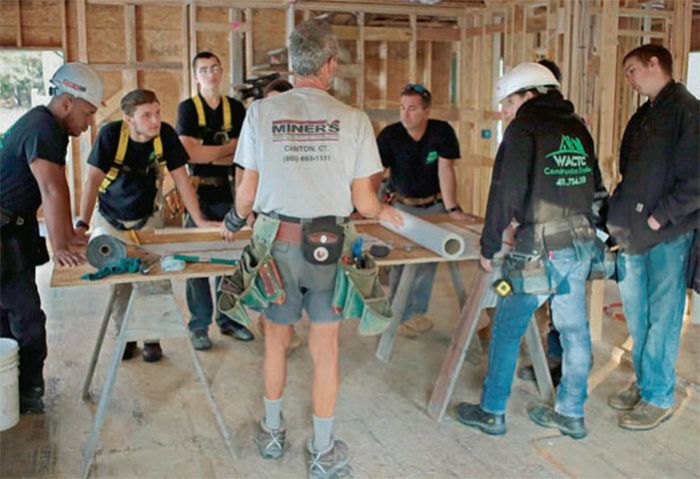
Fine Homebuilding rarely dives into the economics of the construction industry and the factors that contribute to its growth or decline. We have always focused our content on the practical side of design, building, and remodeling. Even so, we have never completely divorced ourselves from developments within the industry at large. Our success, and yours, is far too dependent on its policies, economics, and labor changes. Right now, a lot is happening in this industry, and not all of it is for the better. Though the post-recession housing market is bouncing back, the construction workforce is not, and that’s posing significant challenges to anyone who works on or owns a home.
A disparity between the employment demands of a growing housing industry and the shortage of trained, qualified labor — the so-called skills gap — is rocking home building to its core. In a 2016 industry survey prepared by Marianne Cusato, a professor at Notre Dame’s School of Architecture, 93% of professionals felt their businesses would grow over the next year if not for difficulties in hiring skilled employees. Of those who are qualified as skilled laborers, 61% attribute the shortage to a lack of exposure to the trades for younger generations. Many of you have echoed these struggles, whether in trying to hire an employee for your own crew or finding a qualified contractor to work on your home. Blame it on the housing crisis and the Great Recession, the lack of formal apprenticeship programs, the reduction in an immigrant labor pool, or the rampant extraction of shop class and technical training in public education since the 1990s, but the fact remains that there is home-building work to be done in this country and not enough trained builders and remodelers to do it. From the pace of building, to the cost of construction, to the prices of homes, to the quality of our housing infrastructure, the skills gap is having deep and far-reaching influence.
That’s why the team here at Fine Homebuilding is launching a campaign to help close the skills gap. We’re calling it Keep Craft Alive, and we’re leveraging all of our resources to bring awareness to the cause. Starting this year, we’ll be partnering with industry organizations and influencers to build awareness of the skills training and educational opportunities that exist in this country, and we’ll be funding student scholarships to support those who want to pursue a path in the trades. Also — and this is perhaps our most challenging and important task — we’ll continue to celebrate the value of true craftsmanship in all trades in order to influence the cultural narrative about what it means to be a respected, successful professional.
Show your support for those who have pursued their passion into a career in design, building, and remodeling by using the #KeepCraftAlive hashtag. This is important, ambitious work, and I know of no better community than the readers of Fine Homebuilding to help us in this effort.
Other Keep Craft Alive resources:
- Keep Craft Alive: Monica Coyne, Blacksmith
- Keep Craft Alive hashtag on Instagram
- Keep Craft Alive hashtag on Twitter
- Shop Class as Soulcraft — a powerful book that has helped define the movement
- Keep Craft Alive website
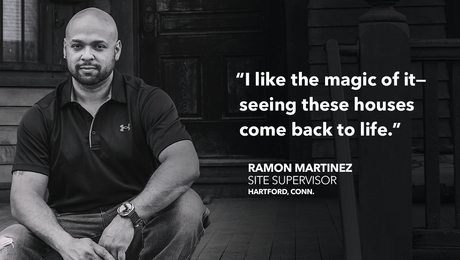
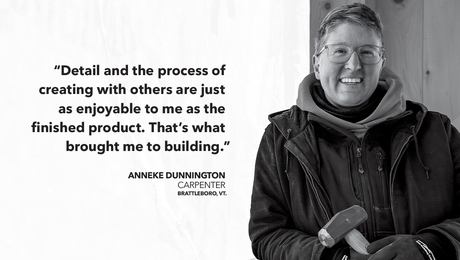






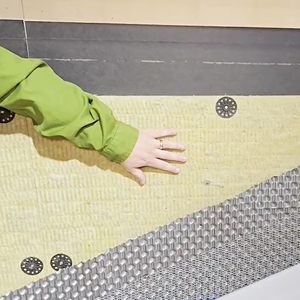









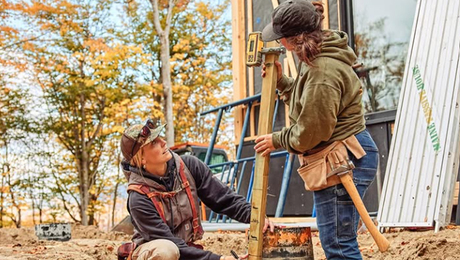











View Comments
Would it be possible to be added to some type of email list for upcoming events regarding this subject?
Where are the girls? If there is a shortage of labor, women need to know they have the option of doing construction. Also, there is a false notion that American citizens don't want to do "heavy" "dirty" labor such as carpentry, masonry or cement work: it's because they are being undercut by cheap unskilled labor. 80% of the residential construction in So Cal is being done by immigrants who will work for $10 an hour. This will not change until the authorities start cracking down on contractors who hire undocumented workers. 30 plus year carpenter, licensed general contractor and Operating Engineer
I echo tswilley9's comment. I have little time for social media like Twitter and Facebook. Email gets my attention.
I applaud your efforts - Much needed.
I definitely agree with the article and would say that the issue has many variables. But I my opinion it's not simply just a lack of experience do to a lack of training (although that is a major contributing factor), but it's also do to the fact that many in the trades are operating like it's the 90's. Skilled carpenters are getting paid similar wages to what they were making in the 90's, but the problem is the cost of living has nearly doubled in that time. $20-$25 p/h 15- 20 years ago was a good middle class wage and a man could support his family on that wage. Now it's nearly impossible to support a family at that same rate and yet it's the standard wage for skilled carpenters. For example, in NJ for a family of four the poverty line is about $42k per year. So if I'm getting paid $20 an hour as a skilled carpenter I'm actually below the poverty line, and that's before paying taxes. After taxes I'm Way below the poverty line and cannot even afford a 2 bedroom apartment in NJ. And what's even more troubling is that many contractors in my area want to only pay their skilled guys $15-18 per hour.... that's a joke! So most skilled carpenters are either forced to start their own companies or leave the trades all together just to support their families. If guys start paying skilled workers what they are actually worth, based upon skill set and supply and demand in the market then you will begin to see things change.
What young American would want to get into the construction trade, when the fellow workers don't speak your language and uncut your wage potential at every turn?
My nephew worked in construction from age 14 until 34. He has worked in everything from high efficiency and eco-friendly homes to conventional residential to commercial to oil fields. He was mobile and went where the work was. He never had a credit card. He always paid cash for everything and saved as much as he could because work comes and goes.
During the big recession employment was scarce, employers were deluged with applications, and they started using completely unrelated things to decide who to hire. Credit checks was one of those things. This highly qualified young man with the most responsible money management of anyone I ever knew could not get work because he had no credit history and therefore could not pass a credit check.
I own a seasonal business in Oregon and go south for the winter where I do remodeling. He would work with me during the late fall and winter and then go off in search of work in the spring. He never found it.
I can attest to his amazing skills and ability to do almost anything in construction. My only complaint is that I had a very difficult time keeping up with him!
But working for his uncle four months every year and then failing to get any other work took its toll on his psyche. He committed suicide in September of 2015 - just as I was about ready to put him back to work.
I think teaching young people to work in construction is great. But I don't want to read about a "shortage of trained, qualified labor". The shortage in the industry is of trained, qualified management.
BGodfrey, My heart aches to hear about your nephew. The effort to get more young people into the trades is a noble thought, but that he felt so undervalued and it gave him so much pain brings up a good point. In this country a person who puts their heart and soul into their trade is put in the same basket as cheap disposable unskilled labor.
FineHomebuilding
You should have been aware of these facts for some time now. You know there is a vast list of competing priorities. The first you refer to is the lack of skilled tradespersons. No there isn’t. You need to confirm your hunches as to why there is a shortage. Keeping them in the trade will be the problem. The business model needs some adjusting in conjunction with governments regarding business and labor.
The disparity you speak of has been well documented. The shortage should be answered by finding out where everyone went to. This in conjunction with the exponential explosion of building changes due in part to energy problems has contributed to the lack of a skilled work force. The lack of the supply of people willing to dedicate themselves to the trade is indicative of the aforementioned reason as to where the trained tradespersons have disappeared to. And your analysis of it seems to be true.
You will need to be the leader of this movement. This may require involvement of many levels of consultants; business, labor, suppliers, designers and so on. I do not know what is happening in the E.U. Countries, but looking in that direction should be a possible priority.
Supporting these crafts is very important for the country. Without skilled crafts to perform such functions the society we appreciate so much will diminish.
Your Neighbor to the North. Good Luck.
Buildit2
There are a lot of factors affecting the Craft. Its about skill, education and craftsmanship, Construction scheduling (this is a big one), location and wages. I would be interested in being involved in a group to help do a paradigm shift in this Craft!
All of the comments above ring true. As a 17 year Carpentry educator in a CTE ( new name for Vo - Techs) school our hurdle is convincing middle and high school guidance counselors that the skilled trades are a viable career path for our youth. Additionally parents need to be on board with realizing that not every son or daughter needs to go to college. I have a Carpentry graduate that achieved his Masters at Rutgers, attained a Human resources job ( 15.00 per hour ) but decided he would rather be back in the Carpenters Union where he already had completed 3 years of apprenticeship. He Currently is earning in excess of 50.00 per hour as a foreman with the Union.
We need to whet the appetites of our youth with exposure to the skilled trades in their younger years . Perhaps it's time to bring back Shop classes to schools.
I am a Oregon High School Construction teacher. As I keep telling anyone who will listen, this is an easily rectifiable issue. All it takes is for someone to give a time investment. Send a builder out to our school for a minimum of two days (45min each day) to work with the students. After that time the student will know the builder, and the builder will know the students.
Now when the student is ready for his first job he knows someone he can call. I can attest that it works the same way with apprenticeships. The builder gets to take his pick, and the student has motivation to keep up his grades and their is a relationship before ever entering the jobsite.
^there
Where are the girls, seconded!
This is the first article, so far, that I have read of "Keepthecraftalive.org". Is there any more to it than this article? I surely hope so. Construction has been good to me, as to those that have helped me along my way and to many others that I have in return helped along their paths. My main trade is carpentry, but I don't feel the specific trade itself matters so much as the individual. It's hard to say whether it, (the job), becomes a part of you or you become a part of it. I have found nothing in life that allows for more personal satisfaction and self confidence. And what better atmosphere to incubate common sense. Three of the most under developed and most needed traits to live and thrive.
In the good old days (1960s) growing up in the Cleveland area, I and all of my high school friends wanted to work construction. So we worked on highway construction crews, on the docks on Lake Erie and in every aspect of home construction. I started when I was 14 and labored on the highways and for carpentry, roofing, concrete and masonry contractors. School didn't seem important as I was making pretty good money, had a pickup truck and a girlfriend and was getting lots of OJT. I worked with older guys who actually remembered when homes were built mainly with hand tools. I worked as a carpenter the summer after high school and then joined the Marine Corps. Did a combat tour in Vietnam and decided to go to college. Didn't have the money though except the GI bill money. That's when I learned the real value of the skills which I had developed in the trades in high school. I worked my way through college picking up work as a carpenter, mason, welder and often worked as a helper/laborer. I was lucky to work for building contractors who were some of the finest people I've known. Honest work for honest pay folks. I went clear through law school. Worked as a lawyer for a few years and became a United States Magistrate Judge. Through those years, my goal was to do four hours of carpentry/masonry, etc. a day. (It gets in your blood, you know.) I retired as a Federal Magistrate Judge a little more than a year ago and am back to working full time in all aspects of home construction. If I hadn't developed the skills, I wouldn't have been able to accomplish what I have. I always strongly encourage young people to pick up a trade and tell them they'll never be sorry. Seems like they all turn off at the mention of hard work.